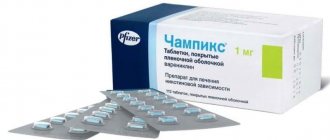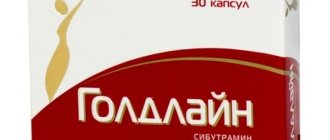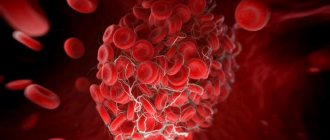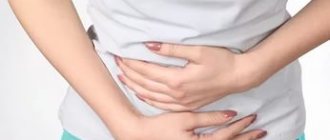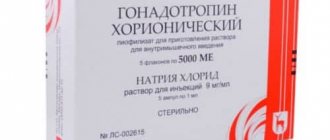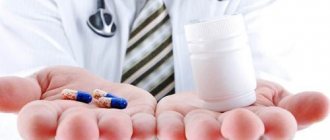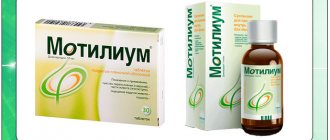Pharmacokinetics of the drug
According to the instructions for use for Nolitsin, after taking the medicine, its active substance norfloxacin is quickly, but not completely, absorbed from the digestive system. The highest concentration is observed after two hours. Eating food may slow down the absorption of the drug.
Due to the low binding of norfloxacin to plasma proteins and high lipid solubility, the drug penetrates well into organs. The drug is excreted by the kidneys due to glomerular filtration, and, in addition, due to tubular secretion. Within twenty-four hours of consumption, thirty-two percent of the dosage is excreted unchanged by the kidneys. Eight percent is released as metabolites. Approximately thirty percent of the dose taken is excreted along with bile.
Is Nolitsin an Antibiotic or Not?
The drug Nolitsin is a broad-spectrum antimicrobial agent. This is a representative of the group of second-generation gram-fluoroquinolones, the action of which is concentrated mainly in the digestive organs and urinary system. The medicine has a bactericidal effect in the body, which is maintained for 12 hours. The component norfloxacin binds to DNA gyrase, destabilizing DNA chains, thereby productively destroying pathogenic flora. The antibiotic Nolitsin is active against the following microorganisms:
- shigella;
- streptococci;
- staphylococci;
- Vibrio cholerae;
- Neisseria;
- salmonella;
- Escherichia;
- Klebsiella;
- Yersinia enterocolitica;
- chlamydia;
- mycoplasma;
- hemophilus influenza;
- legionella.
Indications for use of the medicine
In accordance with the instructions for use, “Nolitsin” is usually prescribed by doctors in the presence of infectious and inflammatory diseases that are caused by pathogens that are sensitive to the main component of this drug. Thus, the medication is prescribed in the following cases:
- The presence of acute and chronic infectious diseases of the urinary tract. Thus, the use of this drug is advisable for urethritis, cystitis and pyelonephritis.
- The appearance of genital infections with cervicitis, endometritis and chronic bacterial prostatitis.
- Development of uncomplicated gonorrhea.
- Development of bacterial gastroenteritis, for example, with salmonellosis or shigellosis.
- Carrying out the prevention of relapses of certain urinary system infections.
- Prophylaxis of sepsis in patients with neutropenia.
- Prophylaxis of diarrhea in travelers.
Indications for use of the drug
In what cases are Nolicin tablets prescribed? What do they help with? According to the attached instructions, the medication in question is prescribed for the treatment of diseases of the genitourinary system that are infectious or inflammatory in nature:
- urethritis;
- chronic prostatitis of bacterial origin;
- endometritis;
- cystitis;
- cervicitis;
- uncomplicated form of gonorrhea;
- pyelonephritis.
What other purposes is the drug “Nolitsin” used for? Indications for taking this drug may be as follows:
- shigellosis;
- bacterial gastroenteritis;
- prevention of diarrhea;
- salmonellosis;
- prevention of septic complications in patients with neutropenia.
Contraindications for use
According to the instructions for use for the tablets, Nolitsin has a small list of contraindications. This medicine is not suitable for use if you have the following conditions:
- The presence of glucose phosphate dehydrogenase deficiency in patients.
- Pregnancy in women or breastfeeding.
- Patients in childhood or adolescence up to eighteen years of age.
- The presence of hypersensitivity to norfloxacin and other drugs from the fluoroquinolone category.
This drug is prescribed with caution in the presence of cerebral atherosclerosis, circulatory disorders, and, in addition, against the background of diseases such as epilepsy and renal failure. Its use is not recommended in case of allergic reactions to acetylsalicylic acid.
This is indicated in the instructions for use.
Reviews of Nolitsin for cystitis are presented at the end of the article.
Contraindications
Nolicin should not be used for:
- pregnancy and breastfeeding;
- individual intolerance to at least one component of this antibiotic or any other one related to fluoroquinolones;
- congenital deficiency of the enzyme glucose-6-phosphate dehydrogenase.
Also, Nolicin should not be used by persons under 18 years of age.
In addition, the drug should be used with caution if:
- problems in kidney function;
- epilepsy and epileptic syndrome;
- problems with cerebral circulation;
- cerebral vascular lesions of an atherosclerotic nature;
- allergies to acetylsalicylic acid (Aspirin).
Patients under 18 years of age are prohibited from taking Nolitsin. Thus, the drug is not used in pediatrics.
Dosing the medication
The drug is taken orally, this is always done on an empty stomach, no less than an hour before meals. The medicine is washed down with a sufficient amount of water. The recommended dose is 400 milligrams twice daily. The duration of therapy should be from seven days to two weeks. If necessary, longer treatment is carried out. This is confirmed by the instructions for use for Nolitsin.
If chronic bacterial prostatitis develops, take 400 milligrams twice daily for six weeks or longer. In the presence of an uncomplicated form of gonorrhea, a single dose of medication is required in a dose of up to 1200 milligrams or 400 milligrams twice a day for a week. When bacterial gastroenteritis develops, patients take 400 milligrams twice a day. The course of treatment in this case is five days.
To prevent diarrhea in travelers, it is advisable to take 400 milligrams the day before travel. Next, the medicine is taken throughout the trip at 400 milligrams per day, and then for a couple of days after its completion. But in this case, it must be emphasized that this medicine should not be used for more than twenty-one days.
As part of the prevention of sepsis, the drug is taken at a dose of 400 milligrams for eight weeks. In the presence of acute uncomplicated cystitis, it is taken 400 milligrams twice a day for five days.
As the instructions for use indicate, “Nolitsin” is also prescribed for cystitis. To prevent recurrent uncomplicated infections of the genitourinary system in the event of frequent exacerbations (more than three cases per year), take 200 milligrams once a night. In this case, the course of treatment will be long and range from six months to several years. Patients with impaired renal function do not need to adjust the dosage regimen.
Also, according to the instructions for use, “Nolitsin” for pyelonephritis is prescribed twice a day (taking tablets every 12 hours) 400 mg for a course of up to two weeks. With pronounced positive dynamics and normalization of urine tests, the period of taking the drug is sometimes limited to ten days.
This information is contained in the instructions for use. Reviews of "Nolicine" 400 mg are available in large quantities.
How to take the drug
In accordance with the instructions given in the instructions for use attached to Nolicin, the dosage regimen is determined depending on the severity of the disease, the stage of its development, the presence of concomitant diseases and the general health of the patient.
The doctor tells the patient what not to do during therapeutic measures:
- Eat foods that help slow down the absorption of the active substance into the gastrointestinal mucosa.
- Limit yourself in fluid consumption.
- Combine antibiotic treatment with the consumption of alcoholic beverages.
- Stays in direct sunlight for a long time.
- Expose yourself to increased physical activity.
The drug can negatively affect a person’s ability to quickly react and concentrate, which means that for the duration of therapeutic measures it is better to refrain from driving a vehicle and performing work that requires increased attention.
The tableted drug "Nolitsin" is prescribed to patients with the condition that the medication will be taken on an empty stomach, at least 1-2 hours before meals. It is better to take the tablets in the morning before breakfast. A prerequisite is plenty of fluid intake, excluding milk, yoghurt, carbonated drinks, coffee, and strong tea. You need to take the tablet with clean drinking water, drinking at least 200-250 ml.
The schedule for taking the drug is drawn up by the attending physician after conducting a detailed examination, excluding existing contraindications and restrictions.
The amount of the daily dose is also determined by a qualified specialist, depending on the characteristics of the disease that will be combated with the help of an antibiotic.
In most cases, Nolicin is taken 1 tablet twice a day. The time interval between doses should be at least 10-12 hours. The duration of the course of therapy is determined depending on the severity of the disease:
- Chronic urinary tract infections are treated from six months to two or more years.
- In the postoperative period, Nolitsin is taken for at least three weeks, but more than two months, to prevent the development of severe infection or sepsis.
- During long journeys, the use of Nolitsin is necessary to prevent digestive disorders. You can take 1 tablet twice a day with an interval of 10-12 hours for 45-60 days.
An incorrect dosage regimen or a violation of the schedule for taking an antibacterial drug causes the development of side effects, which become noticeably worse when the antibiotic dosage prescribed by the doctor is exceeded.
Patients who have exceeded the recommended dosage of the medication, or who started taking it despite the presence of contraindications, after some time consult a doctor with complaints of:
- nausea;
- vomiting;
- stomach ache;
- diarrhea;
- dizziness;
- deterioration of hearing, smell and vision;
- dizziness;
- frequent sudden fainting;
- unjustified feelings of fear and anxiety.
To make a decision and decide to carry out therapeutic measures using Nolitsin, you need to visit sites where a doctor or a cured patient leaves a review.
Study it carefully and form your own opinion about the effectiveness of the antibiotic or the existing risks of therapy with its use.
Side effects during use
On the part of the digestive system, patients using Nolitsin may experience a decrease in appetite along with bitterness in the mouth, nausea, vomiting, abdominal pain, diarrhea and pseudomembranous enterocolitis (which usually occurs during long-term use). An increase in the activity of liver transaminases is possible. This is confirmed by the instructions for use and reviews of Nolitsin tablets.
Malfunction of the urinary system is usually accompanied by crystalluria, glomerulonephritis, dysuria, polyuria, albuminuria, urethral bleeding, increased urea, and, in addition, increased plasma creatinine. On the part of the nervous system, patients may experience headaches along with dizziness, fainting, insomnia and hallucinations. In older people, symptoms may include fatigue, drowsiness, anxiety, irritability, fear, depression, and tinnitus.
The work of the heart and blood vessels may be accompanied by tachycardia, arrhythmia, decreased blood pressure and vasculitis. The skeletal and muscular systems may react with arthralgia, tendonitis, and tendon rupture. The hematopoietic system reacts with eosinophilia, leukopenia and decreased hematocrit. Allergic reactions in the form of rash, itching, urticaria, swelling, malignant exudative erythema, and so on are also possible.
This is also confirmed by the instructions for use and reviews of Nolitsin.
Nolitsin for cystitis
Nolicin is the commercial name of Norfloxacin, an antibiotic of the Fluoroquinolone group. The drug is released in tablet form. It is used in the treatment of enteritis and urogenital diseases.
This article is an instruction for the use of Nolitsin for cystitis.
Nolitsin's leave form
Nolicin is produced in the form of film-coated pills in blisters of 10 or 20 pieces. The active substance is Norfloxacin, contained in an amount of 0.4 g; The filmy coating protects the components of the tablet core from the aggressive environment of gastric juice. Excipients mitigate the side effects of antibiotic use. The drug is characterized by moderate cost. The price of a package of Nolitsin containing 10 tablets is 150...200 rubles.
Pharmacology
Norfloxacin destroys the DNA of microorganisms, preventing their reproduction. Auxiliary components are selected so that a bactericidal concentration is quickly created and maintained for a long time, where it is necessary. The most sensitive to Nolitsin is E. coli, which is considered the main culprit of the inflammatory process in the urinary reservoir. For better absorption of norfloxacin from the intestine, it is necessary to eliminate the shielding effect of food masses. Therefore, Nolitsin tablets for cystitis are taken between meals.
Fluoroquinolones have the ability to penetrate the blood-brain and placental border. Most of the active component Nolitsin is excreted in urine and a small part in feces. Therefore, long-term use of the drug in recommended quantities does not lead to the death of beneficial microflora of the large intestine and digestive disorders.
Purpose
Nolicin is prescribed for cystitis in women, because they are the ones who are susceptible to this disease. For adolescents, medications containing norfloxacin are contraindicated due to its effect on the formation of collagen fibers of the ligamentous apparatus in persons who have not completed growth.
Elderly people do not tolerate this medicine well, and in men of reproductive age, the bladder rarely becomes inflamed. In addition to cystitis, Nolitsin successfully fights pyelonephritis and other urogenital diseases.
Use of the drug
How to take Nolitsin for cystitis? The table below will help answer this question.
| Form of cystitis | Number of tablets | Course of treatment, days | |||
| per appointment | per day | Basic treatment | Extended use | ||
| days | table/day | ||||
| Uncomplicated | 1 | 2 | 3…5 | — | — |
| Spicy | 1 | 2 | 7…10 | — | — |
| Recurrent | 1 | 2 | 28 | 56 | 1 |
| Prevention of exacerbations | 1/2 | 90 | 90 | 1/2 | |
For uncomplicated inflammation of the bladder, the doctor prescribes treatment for cystitis with Nolicin, one tablet, twice a day, with a desired interval of 12 hours. If recovery occurs after 3...5 days of use, the drug is discontinued. In the case of acute cystitis, the duration of treatment is 7...10 days.
For chronic inflammation of the bladder, prone to manifestations, the main treatment is characterized by the same frequency of taking an antibiotic. The duration of the course, at the discretion of the doctor, can be 12 weeks. For the first 28 days, the usual dosage regimen remains, 2 tablets per day.
Next, the number of pills is halved.
Chronic cystitis can become a lifelong disease. If relapses are not observed, this does not mean that a complete cure has occurred. From time to time, the doctor recommends preventing exacerbations, which consists of taking ½ tablet for 3...6 months. The course of taking Nolicin involves consuming a significant amount of fluid to prevent complications, which will be mentioned below.
Side effects
Side effects can occur if you take an antimicrobial drug in an irregular manner, for example, not observing the 12-hour interval, or consuming insufficient amounts of fluid. Among the general negative consequences of using Nolitsin, the following are listed:
- bitterness in the mouth;
- vomit;
- abdominal and epigastric pain;
- colitis;
- dysbacteriosis;
- thrush;
- photosensitivity - under the influence of ultraviolet radiation, dermatitis occurs that resembles sunburn.
Norfloxacin interferes with the synthesis of collagen, destroying it; with prolonged use of Nolitsin, tendon inflammation occurs, the most typical being Achilles rupture. The urogenital organs respond to the antimicrobial agent by increasing the volume of urine excreted, and in case of insufficient fluid intake, by crystalluria.
Negative reactions of the nervous system include the following:
- noise in ears;
- irritability;
- headache;
- convulsions;
- pressure drop;
- joint pain.
Contraindications
The following contraindications exist for the use of Nolitsin in the treatment of cystitis:
- age restrictions - the drug is not prescribed to children and adolescents, because norfloxacin destroys the developing textures of the musculoskeletal system;
- pregnancy and breastfeeding for the same reasons;
- drinking alcohol together with norfloxacin causes allergic conditions and provokes the occurrence of toxic hepatitis;
- diseases of the heart and blood vessels;
- old age, old people do not tolerate fluoroquinolones well.
Reviews
Reviews of Nolitsin for cystitis are varied - from enthusiastic to sharply critical. The latter, for the most part, are associated with violation of the rules for taking medication. Staying in the sun and drinking alcohol during treatment cause negative effects. There is individual intolerance to norfloxacin or other components of the drug.
Storage
Nolicin is stored in the dark at a temperature of <25 degrees, protected from children. The shelf life from the date of manufacture is 5 years. The drug for cystitis is available by prescription, which prevents the use of the drug for self-medication.
Nolicin is an antibiotic used to treat cystitis in women. The drug effectively fights infection that has penetrated the urinary canals, but has a large list of side effects and contraindications. Therefore, treatment is carried out under strict medical supervision.
Drug overdose
Symptoms of overdose usually include nausea, vomiting, diarrhea, and in more severe situations, dizziness along with drowsiness, cold sweats, convulsions and a puffy face may occur without changing basic hemodynamic readings.
Treatment in this situation should certainly be gastric lavage along with adequate hydration treatment with forced diuresis and symptomatic therapy. In addition, a mandatory examination of the patient and observation in a hospital setting for several days is required. There is no specific antidote for this drug.
What else does the instructions for use for Nolitsin 400 mg tell us?
Drug interactions
During the simultaneous use of norfloxacin with theophylline, the concentration of the latter in the blood plasma should be monitored. In addition, adjustment of its dose is necessary, since norfloxacin can reduce the clearance of theophylline by twenty-five percent. In this regard, corresponding undesirable side effects may develop. The main component of the drug, norfloxacin, can also reduce the effect of nitrofurans.
The substance norfloxacin enhances the therapeutic effect of drugs such as Cyclosporin and Warfarin. In some situations, when using norfloxacin with these drugs, an increase in creatinine concentration was observed, so such patients need to monitor this indicator.
The simultaneous use of norfloxacin with antacids that contain aluminum or magnesium hydroxide, as well as the parallel administration of drugs that include iron and zinc, can reduce the absorption of the main component of the drug. The immediate interval between their use should be at least two hours.
The simultaneous use of Nolitsin with drugs that lower the seizure threshold can lead to epileptiform seizures. Parallel use with glucocorticoids may cause an increased risk of tendonitis, and at the same time cases of tendon rupture. "Nolitsin" is able to enhance the therapeutic effect of hypoglycemic medications that are sulfonylurea derivatives.
Simultaneous use of Nolitsin with drugs that have the potential to lower blood pressure can cause a sharp drop in this indicator. In this regard, in such situations, and, in addition, when administered simultaneously with barbiturates and other drugs for general anesthesia, monitoring of pressure and cardiac electrocardiogram parameters is necessary.
This is what is written in the instructions for use for Nolitsin 400 mg tablets.
Alcohol compatibility
Antibacterial medications from the fluoroquinolone series are strictly incompatible with alcohol. This combination can lead to serious consequences and depression of the nervous system. Such states can even result in coma. In addition, given that this drug is excreted primarily by the kidneys, Nolitsin with alcohol, when taken simultaneously, can cause severe intoxication associated with a disruption in the process of utilization of metabolic products.
In patients suffering from kidney disease and problems with the nervous system, combining this medication with alcohol also increases the risk of seizures. It should be noted that drinking alcohol completely eliminates the effectiveness of this antibiotic. In this regard, such a combination can be dangerous not only due to side effects, but also as a factor that makes antibiotic treatment absolutely useless.
When combined with alcohol, further progression of the underlying infectious disease is likely, along with the development of purulent complications. The combination of Nolitsin with alcohol can also lead to toxic hepatitis and an increased risk of developing pseudomembranous colitis.
special instructions
During treatment with Nolicin, patients need to receive a sufficient amount of water. During therapy, an increase in prothrombin value is possible. During surgical interventions, monitoring the state of the blood coagulation system is important. During treatment with this drug, patients should avoid exposure to direct sunlight.
In case of pain in the tendons or in the presence of the first signs of tenosynovitis, it is recommended to discontinue the drug. Among other things, it is recommended to avoid heavy physical activity during the treatment period. You should also be careful while driving.
This is described in the instructions for use.
Analogs
If Nolitsin tablets cause side effects and sharply worsen the patient's condition, they need to be replaced. Reliable analogues:
- Loxon-400. These are tablets with an antimicrobial effect for oral use. According to the instructions, if the urinary system is damaged, the patient is prescribed 1-2 tablets. per day for 7–14 days.
- Sophazine. The medication in tablet form is prescribed for infectious and inflammatory diseases caused by microorganisms sensitive to norfloxacin. According to the instructions, the patient is supposed to drink 1–2 tablets. per day for 7–14 days.
- Norfacin. This is a representative of the group of fluoroquinolones in the form of tablets for oral use. According to the instructions, the patient is prescribed 1–2 tablets on an empty stomach. per day for a course of 1–2 weeks.
- Norbactin. The drug is effective for infectious and inflammatory processes of the prostate gland, urinary system, and digestive tract. According to the instructions, the optimal dosage is 1 tablet. morning and evening, course – up to 2 weeks.
- Renor. Another antibiotic with a systemic effect in the body. Daily doses and method of administration are identical to the medications described above and are presented in the instructions for use.
What is better “Nolitsin” or “Monural”?
It is impossible to answer this question unambiguously. Before choosing a medicine for the treatment of cystitis, it is necessary, first of all, to take into account many different factors, for example, such as the patient’s age, the presence of certain contraindications, the frequency of relapses, the presence of sensitivity and complications.
Typically, the main drug of choice for specialists in the treatment of uncomplicated cystitis is Monural. This medicine is unique in its kind, since the therapeutic course lasts a maximum of two days. "Monural" is easily tolerated by patients, causing almost no side effects during and after treatment.
In addition, Monural can be used to treat children aged five years and older; it is also suitable for pregnant women. The immediate advantage of Nolitsin is that it can be used over long courses to prevent exacerbations.
The instructions for use for Nolitsin 400 mg confirm this.
Nolicin tablets dosage and method of administration
Orally on an empty stomach (at least 1 hour before or 2 hours after meals) and wash down with a sufficient amount of liquid. In the absence of special prescriptions from a doctor, the following doses are recommended: 1 tablet (400 mg) 2 times a day. The duration of treatment is from 7 to 14 days, if necessary, longer treatment is carried out. For chronic bacterial prostatitis, 400 mg is prescribed 2 times a day for 4-6 weeks or more. For uncomplicated gonorrhea, the drug is prescribed once at a dose of 800-1200 mg or 400 mg 2 times a day for 3-7 days. For bacterial gastroenteritis (shigellosis, salmonellosis), 400 mg 2 times a day is recommended for up to 5 days.
To prevent travelers' diarrhea, it is recommended to take 400 mg per day 1 day before departure, during the entire trip and 2 days after it ends (no more than 21 days). To prevent sepsis in neutropenia, 400 mg is prescribed 2 times a day for up to 8 weeks. For acute uncomplicated cystitis, 400 mg is prescribed 2 times a day for 3-5 days. For the prevention of recurrent uncomplicated urinary tract infections with frequent exacerbations (more than 3 episodes per year or more than 2 within six months), the drug is prescribed 200 mg (1/2 tablet of Nolicin) 1 time per night for a long time (from 6 months to several years).
Patients with impaired renal function with creatinine clearance more than 20 ml/min do not require dosage adjustment. When creatinine clearance is less than 20 ml/min (or serum creatinine level is above 5 mg/100 ml) and patients on hemodialysis are prescribed half the therapeutic dose of Nolicin 2 times a day or a full dose of the drug 1 time a day.
Reviews about the drug
Among the reviews about “Nolitsin” there are a variety of comments. Positive ones indicate the high effectiveness of the drug. People write that thanks to its use, improvement in well-being occurs within a day from the start of therapy. Many buyers also note the relatively low price of the drug as an advantage, which is especially important if a long course of treatment is necessary.
Negative reviews mainly concern common side effects of the drug, especially on the functioning of the digestive organs and nervous system. Some people do not like the overly large size of the tablets. People also write that this drug causes a bitter taste in the mouth. And finally, patients are discouraged from using this medicine by the fact that Nolitsin is an antibiotic, and, therefore, entails undesirable consequences associated with disruption of the intestinal microflora.
We reviewed the instructions for use and reviews of Nolitsin 400 mg.

